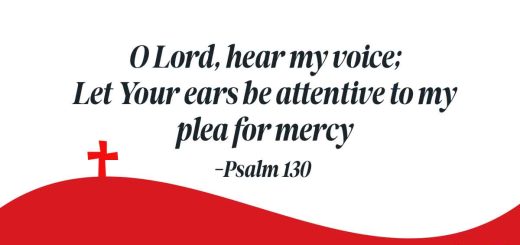God of Mercy: 24th Sunday in Ordinary Time
 Emmanuel Sermons – Twenty-Fourth Sunday In Ordinary Time – Year C
Emmanuel Sermons – Twenty-Fourth Sunday In Ordinary Time – Year C
Sermon And Christian Act In The Word
Theme: God’s Love for His People! He forgives us our Sins! God of Mercy!
Point of Reflection: Have I ever got lost in life like the lost son (Cf Luke 15)? And have I ever behaved like the elder son who thinks is righteous, but by denying his younger brother, he also becomes a lost son? What do I do when I commit sin? Where do I go when I do wrong things? We need to turn to God, God forgives us and He loves us.
Today’s liturgy reminds us of God’s passionate love for us. This love means that God does not abandon us even if we stray far away from him. Instead, in every instant of our lives, his loving gaze is upon us. Even when we wander far away from him by becoming lukewarm and indifferent, he keeps on searching for us until we come back to him. His mercy and love ensure that we are always welcomed back to his loving embrace. Aware of this, we must always be thankful for this mercy and love.
First Reading: Exodus 32:7–11, 13–14
Psalm: Psalm 51:3–4, 12–13, 17, 19
Second Reading: 1 Timothy 1:12–17
Gospel: Luke 15:1–32
Sermon (Reflection): The gospel passage of today gives us a true definition of God’s love and forgiveness. It contains two parables and a story in which God’s passion for his people is exceptionally revealed.
The first parable, often called “the lost sheep”, is not about a sheep but about a shepherd who risks ninety-nine sheep to find a single lost one. The shepherd acts recklessly, endangering the entire flock for the sake of a single animal. This extraordinary action reveals the shepherd’s burning passion and deep concern for each member of his flock. This parable makes a point that God, like a passionate shepherd, refuses to give up on any member of his flock and would go to any length to reunite the lost one to himself. As Christians, we need to realise that God is always ready and looking after us. The only thing we need to do is to open our hearts and accept that we are lost and we need to get forgiveness.
The second parable, often titled “the lost coin”, is, in fact, about a woman who goes to great lengths to find a single lost coin. The surprising element in this parable is that, after finding the coin, the woman throws a party for her neighbours and friends, a banquet that would cost her much more than the coin she found. Again, the point of the story is to show that God, like a woman gripped by the desire to hold on to all her coins, would not rest until he finds the one who was lost. God is always ready to forgive us, let us open our hearts.
Finally, the story often called “the prodigal son”. But they are two sons and both of them needed forgiveness. Actually, it is better to call it ‘A Compassionate Father’, because it is not about the son but about the father concerned to reunite his two lost sons to himself. The younger son, the prodigal one, disowns his father by asking for his inheritance. In fact, he acts as if the father was already dead because that is when the division of property was normally done. He then separates himself from the family and squanders his wealth. Left with nothing, he returns hoping for forgiveness. However, the real hero of the story is the father waiting for the son’s return. Seeing his son from afar, he runs to embrace his lost child, and, like the woman in the previous story, throws an exuberant party to celebrate the reunion.
The older son, the righteous one, does not understand the father’s decision to welcome back the one who deserted him. He thinks that his father acts unfairly towards him, the older son, and, self-righteous and offended, he refuses to enter the household and join the celebration. Now, it is the older son who disowns the family and separates himself from the father. The father again takes the initiative. Coming out of the house, the father reassures the older son of his love and appreciation for him, seeking to bring him back to the family. This is the story about the father whose chief concern is to keep his family together, which he does by acting with forgiveness towards the younger son and with understanding towards the older one. His concern is particularly for those who become lost in life or separate themselves from the one who passionately desires their friendship. That is what God does to us, He loves us and always wants us be united in mercy and love
The first reading of today reports a dialogue between God and Moses, following the grave sin of idolatry, which the Israelites committed soon after their liberation from Egypt. They made a golden calf, an image resembling the gods of their oppressors, and worshipped it. In doing so, they disowned the true God who had liberated them from Egypt and broke the covenant which has just been made at Sinai.
God angrily decided to respond reciprocally. He speaks to Moses about “your people, whom you brought up out of the land of Egypt”, implying that they are Moses’ people, not his. God disowned them and intended to destroy this unfaithful nation and start afresh with Moses as the father of a new nation.
Moses’s response reveals his greatness as a leader. He did not take up God’s tempting offer. Rather, to save the nation, he reminded God about the promise God had made to the Israelite ancestors, the patriarchs. If God disowns their descendants, then God would be like the Israelites – unreliable and unfaithful. In response, God’s anger subsided, and the nation was saved. God remained loyal to his disloyal children. This is the love God has for us human beings. Our part as Christians is to open our hearts so that we can receive the mercy and love of God.
The second reading of today contains Paul’s autobiographical statement, where he recalls his pre-Christian life as a blasphemer and a violent persecutor of Christ’s followers, which Paul never denied or concealed. Instead, he willingly acknowledged his past to make of himself a living example of God’s transforming mercy and power which changed Saul the sinner into Paul, the apostle to the Gentiles. As Christians, are we ready to repent? The problem of today is to deny sin, by denying sin, we are also refusing to receive the graces from God.
The same God who forgave the sins of the people at Sinai also forgave the sin of Paul. The same God is ready to forgive us all if we accept our wrong doings and ask for forgiveness and mercy.
Christian Act in Word of God: “I will recognise God’s love and ask for Mercy”
Many, if not all of us, at certain moments of our lives, have forgotten God, and we have made various idols for ourselves. Some of us have made social media, smartphones, sports, drugs or pornography idols that took over our lives and which we willingly worshipped. These idols have taken us away from God. Still, God never abandons us, so that we can be reconciled and return to him. God’s mercy goes further than any distance we could have reached in our flight from him. For Paul, the transforming mercy and power of God in his life turned him from a bold persecutor and a man of violence into an ardent apostle of Christ. If we find ourselves in a similar state of separation from God, we can also allow the transforming mercy and power of God to bring us back to him.
God forgives us when we are ready to say sorry to Him. We as Christians also need to forgive one another when one says sorry. We need mutual love.
Today’s liturgy reveals a deeper dimension of forgiveness. God forgives because of his burning passion for the people. This passion could be simply called “love”. Because of this love God did not disown the people of Israel, even though they abandoned him for a golden calf they themselves had made. Paul’s life story shows that God was so concerned with the salvation of the Gentiles that he transformed a violent persecutor of Christians into the apostle of the Gentiles. The Psalmist knew this fully well and therefore opened his prayer for forgiveness with the words, “Have mercy on me, O God, according to your steadfast love.”
God will never give up on us. Because of this love, God will search for us until we come back to him. His love for us is unconditional and without end. Even if we did not feel this love when we surrounded ourselves with the idols we have carved for ourselves, he still loves us, and he is ready to forgive us to help us change our future. Let us leave the past at the mercy of God, which is greater than our sins, and let us open ourselves to a better future, trusting in God’s passionate love for us.
Action: This week, I will accept that I am a sinner and ask for God’s forgiveness and Mercy.
Prayer: God of Love and Mercy, we thank you for the gift of life and for your love and mercy to us, your children. Send your Holy Spirit to open our hearts to accept our sins and wrongdoings so that we ask for forgiveness in our daily Christian life. As you welcomed the lost son, welcome us too, as You do not abandon us but lead us back to You. We make our prayer through Christ our Lord, Amen.
- Faith Can Move Mountains: 27th Sunday in Ordinary Time - October 3, 2025
- The Danger of Unconcern: 26th Sunday in Ordinary Time - September 26, 2025
- Am I a Faithful Servant? 25th Sunday in Ordinary Time - September 19, 2025




